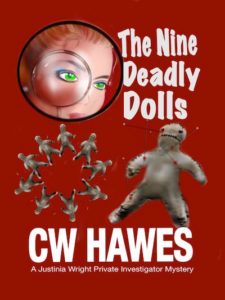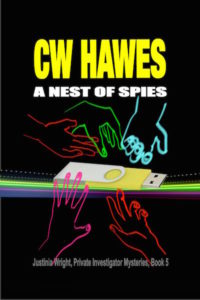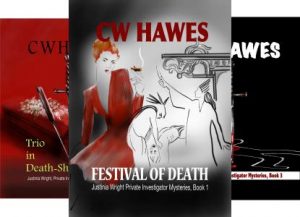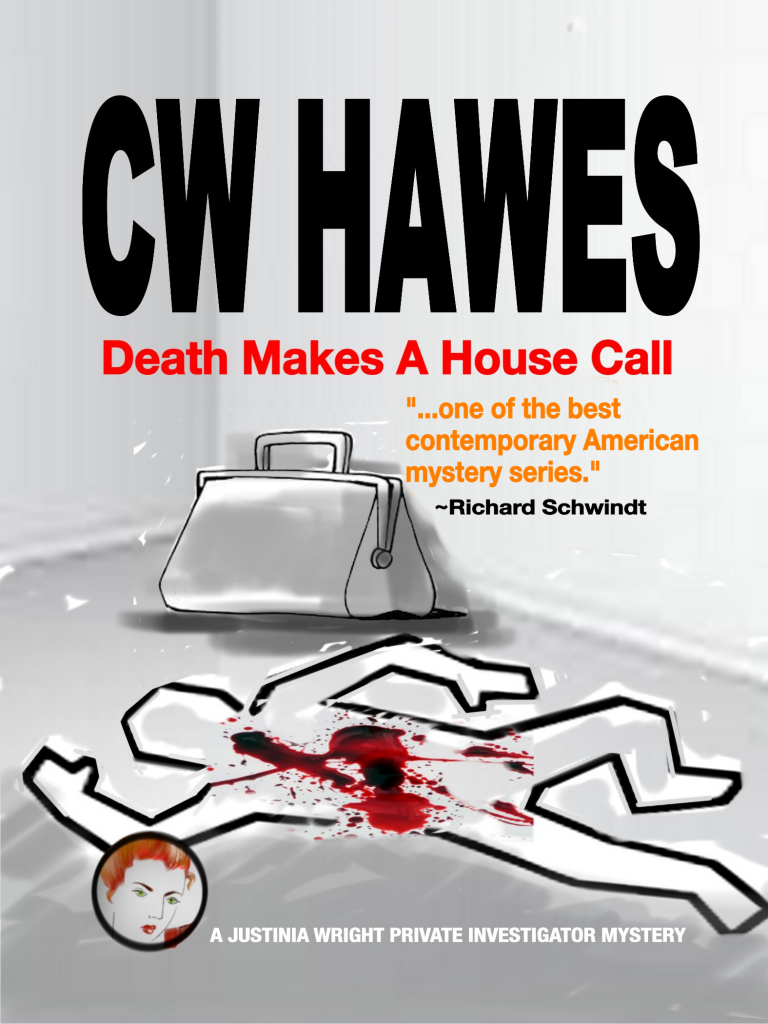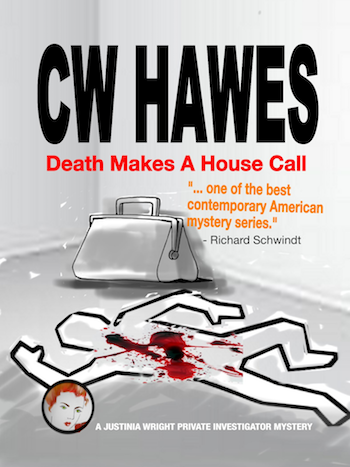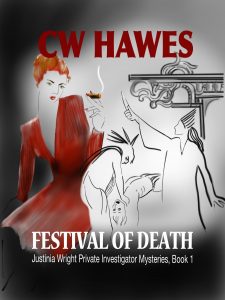
It’s been a while since I’ve offered a snippet of one of my works in progress.
At present, I’m writing two Justinia Wright mysteries, and editing a third.
Today’s snippet is from the Justinia Wright novella I’m working on. (Please note: this is the initial draft prior to any editing.) Enjoy!
***
We were in the office digesting our lunch of grilled cheese sandwiches, and cream of kale and butternut squash soup, when the doorbell rang.
On the doorstep, was a tall, heavy-set fellow. He wore a dark brown suit. His shirt was white, and his tie was intricately patterned with irregularly shaped orange-red dots.
I opened the door and asked what he wanted.
“I’d like to see Justinia Wright. My name is Helmar Johanson. I’m on the orchestra’s board of directors, and I understand Ms Wright is investigating the death of Juliette Boudreau.”
“Wait right there. I’ll see if Miss Wright is available.”
Back to the office. I poked my head inside the doorway. “Helmar Johanson from the orchestra’s board is here to see you. Shall I let him in?”
Tina looked at her cigar, turned her gaze in my direction, and with a frown on her face, said, “Yes.”
Back out to the front door. I let in our guest, took a look at the curb, and had to pick my jaw up off the floor. At the curb was a white sports car.
As I took Johanson’s jacket, I asked as calmly as I could, “Is that car out front, yours?”
“The Porsche?”
I nodded, and hung his jacket on a peg.
“Yes, it’s mine. Why do you ask?”
“Just curious. Do you like it? Does it handle well?”
“Of course. It’s a Porsche.”
I nodded, led him into the office, made introductions, and indicated he should sit in the oversized oxblood wingback. The chair was certainly not oversized for him.
“What may I do for you, Mr Johanson?” Tina asked.
“I’m on the chamber orchestra board, and I contribute significantly towards the operating expenses.”
Tina shrugged. “Okay, I’m impressed.”
A look of surprise swept across his face and disappeared. “I want to know what you are doing to find Miss Boudreau’s killer. Are you, in fact, doing anything?”
“Is there a reason I should tell you?”
This time incredulity swept across his face, lingering a moment before disappearing. Apparently, Mr Johanson wasn’t used to people talking to him that way.
“I just told you I’m on the board. I have a right to know.”
“Is this right written down somewhere?”
“What do you mean? Of course it’s not written down.”
“Then what makes you think you have the right to know?”
“What? Of course I do.”
“Of course you don’t. We have no contractual obligation to each other. Therefore, you have no right to demand anything of me. Natural rights do not infringe on another person’s freedom. In other words, they are not coercive. Free speech takes nothing away from anyone. It is not coercive.”
“What the hell are you going on about?”
“Just this, Mr Johanson: you have no right to demand that I give you information about my client and his case. In other words, you have no right to know anything. You may earn the privilege of my willingness to share. Or you may simply ask me to share. But you have no right to know anything about my investigation.”
“I help fund the orchestra. I’m on the board.”
“So?”
“I’m entitled to know what’s going on.”
“Who says so? I don’t. You have no right, legal or moral, to the information that I have about my client. I may choose to share it with you. And for me to consider doing so, you must ask. Demanding will get you nowhere. However, you must realize that I have a duty to protect my client’s interests — and that may mean I tell you nothing.”
Now, my sister has resorted to a lot of tricks to get people to leave her office, but when she opened the humidor and took out a cigar that was a first.
“Are you going to smoke that thing?”
“That is what one generally does with a cigar. Personally, I don’t like chewing on them.”
“I have a lung condition.”
“No one is forcing you to stay.”
“Well, I’ll be…” He looked at me, I suppose expecting I come to his aid, both of us being men and all. I just shrugged.
He stood, opened his mouth, no words came out, so we closed it. He turned around and left. I followed to make sure he didn’t forget his jacket and that the door got closed, which it did after I watched his white sports car drive off.
Share This!


